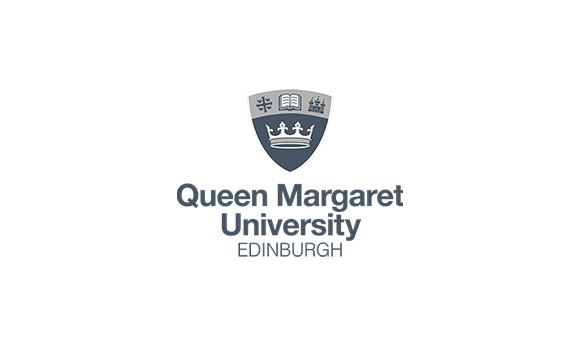Student Attendance and Engagement Policy
1. Introduction
This policy outlines the University’s approach to monitoring student attendance and engagement. The University is committed to supporting students to achieve their full potential and recognises that regular engagement in and attendance at teaching and learning activities are key components of successful student retention, progression, and academic achievement. Lack of attendance and engagement may indicate that a student is experiencing difficulties and needs additional support.
Detailed operational guidance is available to support the implementation of the policy and can be accessed here:
This policy will apply to students enrolled on undergraduate and postgraduate taught programmes (across all Divisions and levels of study) for their synchronous, timetabled sessions. The policy comes into effect from academic session 2025-26, supported by the introduction of attendance monitoring software. The policy may also apply to students studying towards an award of the University that is delivered by a partner institution, where expressly stated. In 2025–26, the policy will not apply to QMU Online programmes or modules, or to programmes delivered entirely asynchronously, as only attendance data will be monitored. It is anticipated that engagement monitoring will be introduced from 2026–27.
The policy does not apply to doctoral students whose attendance and engagement expectations and the means of recording are detailed elsewhere (see Graduate School Regulations).
Some programmes may have attendance requirements that differ from those set out in this policy. This may be due to a range of factors and requirements, including, but not limited to, Professional, Statutory, and Regulatory Body (PSRB) regulations, for example requiring 100% attendance on specific modules. Such requirements are outlined in the respective programme documents and regulations.
Variations from the policy may be introduced only where there is appropriate University-level agreement based on specific programme requirements.
If a student’s attendance and engagement are such that concerns around their fitness to study are raised, the Fitness to Study Policy may be invoked.
The purpose of this policy is to ensure that there is a consistent and equitable approach to student attendance and engagement through the adoption of an institutional framework for monitoring such attendance and engagement that supports student wellbeing and promotes positive outcomes for students, while also supporting the University in meeting external regulatory and compliance requirements.
The University needs to be able to record the attendance of students at synchronous timetabled (online and in-person) teaching sessions for the following reasons:
a) To aid the retention and wellbeing of students by allowing early identification of those students at risk, and allowing timely interventions to be made in terms of academic and personal support.
b) To comply with the requirements of UK Visas and Immigration (UKVI) under the University’s Student Sponsor licence that requires an accurate record of attendance of those students subject to visa restrictions so that an attendance return can be made within the specified timescales required by that agency.
c) To comply with the requirements of the Student Awards Agency for Scotland (SAAS), which requires attendance and engagement confirmations to be made on a regular basis for those students who are in receipt of SAAS financial support.
d) To enable timely notifications of withdrawals and deferrals to external stakeholders (e.g. UKVI, SAAS).
e) To meet the demand placed on the University to report absences to employers, Professional Statutory and Regulatory Bodies, or other sponsors where they are funding/partially funding programme tuition fees.
Arrangements for monitoring engagement, once implemented, will enable the University to identify and to respond to patterns of disengagement, with such patterns being potential indicators of wider personal or academic issues in those learning environments where engagement does not entail physical attendance. This will apply across a range of provision, including the QMU Online programmes and the digital, asynchronous components of blended learning.
a) Attendance at, and engagement in, University lectures, seminars and other synchronous timetabled sessions is mandatory.
b) Students are active participants in their learning experience, and must take responsibility for achieving their academic potential through successful completion of each stage of their studies. They also share responsibility for fostering a positive and collaborative learning environment that supports the success of their peers.
c) Recording attendance at timetabled classes can provide an indication of levels of student commitment and motivation, and highlight any difficulties that might need to be addressed.
d) Student welfare is a priority for Queen Margaret University. The University will ensure that effective mechanisms are in place both to identify students who may be at risk and to offer appropriate academic and pastoral support and guidance. This may include advising students of alternative options for successful completion of their studies.
e) Regular attendance and academic achievement are closely linked. Students who regularly attend classes are more likely to enjoy a rewarding experience in which core skills and abilities, such as teamwork, are developed.
f) Attendance is a key component in student retention, progression and achievement.
g) Attendance develops attributes for employability – e.g. timekeeping, professional behaviour and personal responsibility.
Attendance: Being present at synchronous, timetabled learning, teaching, and other activities required by modules and/or programmes, including physical attendance at face-to-face sessions and virtual attendance at scheduled online events.
Engagement: Encompasses engaging with, and participating in, guided independent or group study, assessment and feedback, or any other activity that supports student learning and development. This includes, but is not limited to, attending timetabled events, preparing for and engaging with seminars, submitting assessments, accessing and/or interacting with online learning materials, utilising University learning infrastructure, and attending meetings with academic staff. Engagement can refer to being actively involved in educational and social activities. It is a broad and multi-dimensional concept linked to student retention, progression and attainment outcomes.
Absence:
Absence from timetabled learning activities will be classified as either a ‘reported absence’ or an ‘unreported absence’.
Reported Absence:
In accordance with the Extenuating Circumstances Policy, students may self-notify an absence via the Student Portal. Absences extending beyond seven days will be notified to the Programme Leader.
Unreported Absence:
An unreported absence occurs when a student is absent without notifying the University.
All absences should be recorded by students through the Student Portal.
Student attendance at the programme level will be monitored as set out below.
The University’s central student monitoring system (SEAtS) will capture and record relevant student attendance and engagement data in one place. Attendance will be recorded during timetabled sessions using the SEAtS app. Students must scan a QR code displayed by the module tutor to register their attendance. The QR code refreshes approximately every 20 seconds.
If a student is unable to register their attendance using the SEAtS App in class, they must notify the teaching team during or immediately after the class.
• The teaching team can manually record a student’s attendance up to one calendar week after the class.
• The Attendance Team (attendance@qmu.ac.uk) cannot verify that a student attended a class.
However, they can:
o Assist the teaching team with technical difficulties.
o Provide guidance and support on how to mark students as attended manually.
Engagement analytics dashboards will be introduced in due course [academic session 2026/7 estimated] to provide real-time student engagement data as an early indicator of potential challenges. This data can be a proxy for the engagement outlined in Section 5 above.
Connecting student attendance and engagement data to demographic data can contribute to a holistic approach to student retention, progression and attainment, recognising that particular student populations may be more at risk than others.
The University will employ a tiered approach to interventions. Unless otherwise specified in a programme’s definitive document, the following thresholds and actions will normally apply:
Stage 1: Informal Support and Communication
If a student's attendance falls below 70% over a one-week period, they will receive an automated email. The aim of this communication is to support wellbeing and to signpost to support services.
Recognising that entrants may be at greater risk of withdrawal in the first year of their studies, if their attendance falls below 50% over a one-week period, the Stage 2 process will apply.
A data export listing the students contacted during this process will be shared with the Programme Leader for information purposes.
Stage 2: Communication and Targeted Contact
If a student’s attendance remains below 70% for a consecutive two-week period, or if Stage 1 identifies an entrant with attendance of 50% or lower over a one-week period, the Stage 2 process will be initiated. An automated email will be issued, outlining concerns regarding attendance and next steps. This communication will include a link to a self-assessment survey designed to explore possible reasons for reduced attendance, offer appropriate support, and signpost relevant services.
Additionally, if a student’s overall attendance is above 70% but their attendance for a single module is at or below 50% over a three-week period, they may be contacted by the Module Co-ordinator.
A data export listing the students contacted during this process will be shared with the Programme Leader for information purposes.
Stage 3: Review Meeting and Action Planning
Where attendance has not improved despite a Stage 2 intervention, Stage 3 of this policy will apply. If a student’s attendance remains below 70% for the following two consecutive weeks or as otherwise specified in a programme’s definitive document, the Programme Leader will arrange to meet with the student. Stage 3 may also apply where a student is repeatedly referred under Stage 2 of this policy.
A Stage 3 meeting provides the opportunity to discuss the reasons for low attendance and any extenuating circumstances. The student will be provided with any relevant attendance information ahead of this meeting. A student may be accompanied at this meeting. An individual accompanying a student will be a member of the University Community. This means that they are a QMU student or staff member, or a member of the QMU Students’ Union staff.
Outcomes under Stage 3 include:
• Referral to the Fitness to Study process. The Fitness to Study process should be initiated where the meeting highlights any concerns around the Student’s fitness to study and where the student requires appropriate support to continue with their studies.
• Reminder issued to make use of appropriate absence reporting and extenuating circumstances processes.
• Development of an action plan with agreed steps and timelines.
• No further action required. This is likely to be the case where a reasonable explanation for absence is provided or there has been an issue with the absence reporting processes or the Attendance Monitoring System.
An online form is available on the staff portal. The purpose is to record the outcome of the meeting and agreed actions will be shared with the student, the Programme Leader and the Attendance mailbox.
Stage 4: Withdrawal
The University may deem a student "presumed withdrawn" after a period of unreported absence of 60 calendar days or more. Any decision on withdrawal will be made by a panel. This panel will consist of the Head of Division, Programme Leader and a member of the Student Engagement Monitoring Team. Information on the student’s attendance and engagement will be made available to the panel. This includes VLE access, contact with Academic Staff, contact with Student Services and overall academic profile.
A panel may decide to withdraw a student only where they are satisfied that reasonable steps have been taken by the University to engage with the student and no reasonable explanation for absence is provided. Where the panel decides not to withdraw a student based on the information presented, the student should be referred under another appropriate process to ensure they are supported in continuing their studies.
Students will be informed in writing of potential withdrawal and their right to appeal. Where applicable, the University may be required to notify SAAS of a student’s persistent absence.
UKVI Sponsored Students
In addition to attending all classes, International Students who do not have indefinite leave to remain within the UK (e.g. on a student visa) must attend monthly sign-in sessions as advised in writing by the University, during which a student’s contact details and address will be confirmed. When considering an application for a CAS extension, or a CAS in cases where international students with a non-student visa wish to switch to a student visa, a student’s attendance record will be considered when a decision is made about whether a CAS will be issued or not.
Programme Specific Requirements
Due to the professional nature of some programmes delivered at QMU, there are specific Professional/Statutory body requirements with respect to attendance for a number of programmes. Where programmes are required to conform to such requirements, these will be clearly communicated to students via programme handbooks. Likewise, when programmes stipulate their own specific requirements in respect to attendance, these will be clearly communicated to students.
Part-time Students
Attendance is measured in relation to a student’s timetabled sessions. Therefore, consideration will be given to part-time students, who may have fewer timetabled sessions each week. Attendance and engagement expectations will be clearly communicated to students through programme information, and monitoring and intervention will be adjusted accordingly.
Students
Students are specifically responsible for:
a) Attending and actively engaging with all timetabled learning/teaching sessions associated with their programme of study and ensuring they have their attendance registered by recording their attendance via the SEAtS app.
b) Notifying in advance (e.g. using the Student Absence facility within the Student Portal) that they expect to be absent from timetabled classes. Reasons for absence may include being involved in representation at University events or Students’ Union related activities, or medical appointments. (See Absence Policy for further information)
c) Notifying any unforeseen absences from classes as soon as practically possible via the Student Absence facility within the Student Portal.
d) For absences lasting more than seven days, submitting a medical certificate (or other relevant evidence) via the Student Absence facility within the Student Portal.
e) Ensuring that they check their Queen Margaret University email account on a regular basis for any formal notifications/communications, and responding to emails when required to do so.
f) Ensuring that they maintain up-to-date personal contact details via the Student Portal.
g) Making full use of any support mechanisms within the University which may help facilitate successful completion of their programme e.g. Personal Academic Tutor, Student Services, Effective Learning Service, Stay on Course.
Staff Responsibilities
Academic staff are responsible for:
a) Reminding students of the importance of attendance at learning and teaching sessions through induction and longitudinal induction activities.
b) Providing the QR code for students to log in with during each timetabled session. The QR code refreshes approximately every 20 seconds. If a student is unable to scan the code, they must notify the teaching team during or immediately after the class. The teaching team can manually record a student’s attendance up to one calendar week after the session.
c) Notifying the Timetabling team (timetabling@qmu.ac.uk) at the earliest opportunity when a class is cancelled or rescheduled, to ensure this does not negatively impact a student’s attendance data.
Student Support Services: Provide specialist advice and support to students who disclose circumstances that are impacting on their attendance and engagement.
Senior Academic and Academic Support, Staff (e.g., Programme Leaders, Heads of Division, Deans, Assistant Secretaries and School Managers): As appropriate, may be involved in more formal stages of intervention, review meetings, and decision-making regarding withdrawal and authorised absences.
Registry and Academic Administration staff: Maintain formal student records, and provide administrative support to the formal stages of intervention, including the issuing of formal warnings and withdrawal notifications, and to the appeal process.
Students who undertake a placement as part of their programme are responsible for ensuring that their attendance matches the requirements of the academic programme and of the placement provider. Placement providers will inform the University where a student is failing to maintain a good attendance record. A poor attendance record may lead to a student being withdrawn from placement activity and potentially from their programme of study. Additionally, Professional Bodies may specify requirements for placement attendance which must be adhered to. Any Professional Body requirements will be detailed in the relevant Student Programme Handbook.
Students are expected to attend all necessary formal examinations, to participate fully in groupwork assessments, and to submit coursework by published submission dates. Students who fail to attend a scheduled formal examination or to submit a piece of coursework (where no approved extension has been granted or extenuating circumstances (EC) advised in line the EC policy), will be marked as having a non-submission.
Any student who has been required to withdraw due to non-attendance and engagement is entitled to appeal the decision. An appeal must be submitted to appeals@qmu.ac.uk within 14 days of receipt of the notification of withdrawal. The student must set out in writing clearly the grounds, or reason, for the appeal. The appeal will be submitted to the appropriate Dean of School, or to their properly appointed delegate for consideration.
The student may appeal on the following grounds:
• There has been a demonstrable irregularity in the operation of the attendance procedure or with the attendance system.
• New information has become available that was not reasonable to present at earlier stages of this procedure.
Students are encouraged to seek advice from the Students' Union, members of which can offer support with submitting an appeal.
Students must not record the attendance of another student in their absence. Students must only record themselves as present at a learning/teaching session where they physically attend. Where students are identified as having fraudulently used the attendance system, this will be considered misconduct under the Student Misconduct Regulations.
The effectiveness of this policy will be monitored and evaluated through analysis of attendance and engagement data, the impact on progression and retention rates, student feedback, and outcomes of interventions.
Reports on attendance trends may be produced annually for programme teams to consider as part of the Annual Monitoring and Review (AMR) process, and be presented to the Student Retention (WISeR) Board, to the Student Experience Committee, and to the Senate.
Feedback from staff and students will be used to refine the policy and its procedures at the time of its formal review, and as part of the ‘lessons learned’ process supporting University policy delivery.
Updated September 2025

























